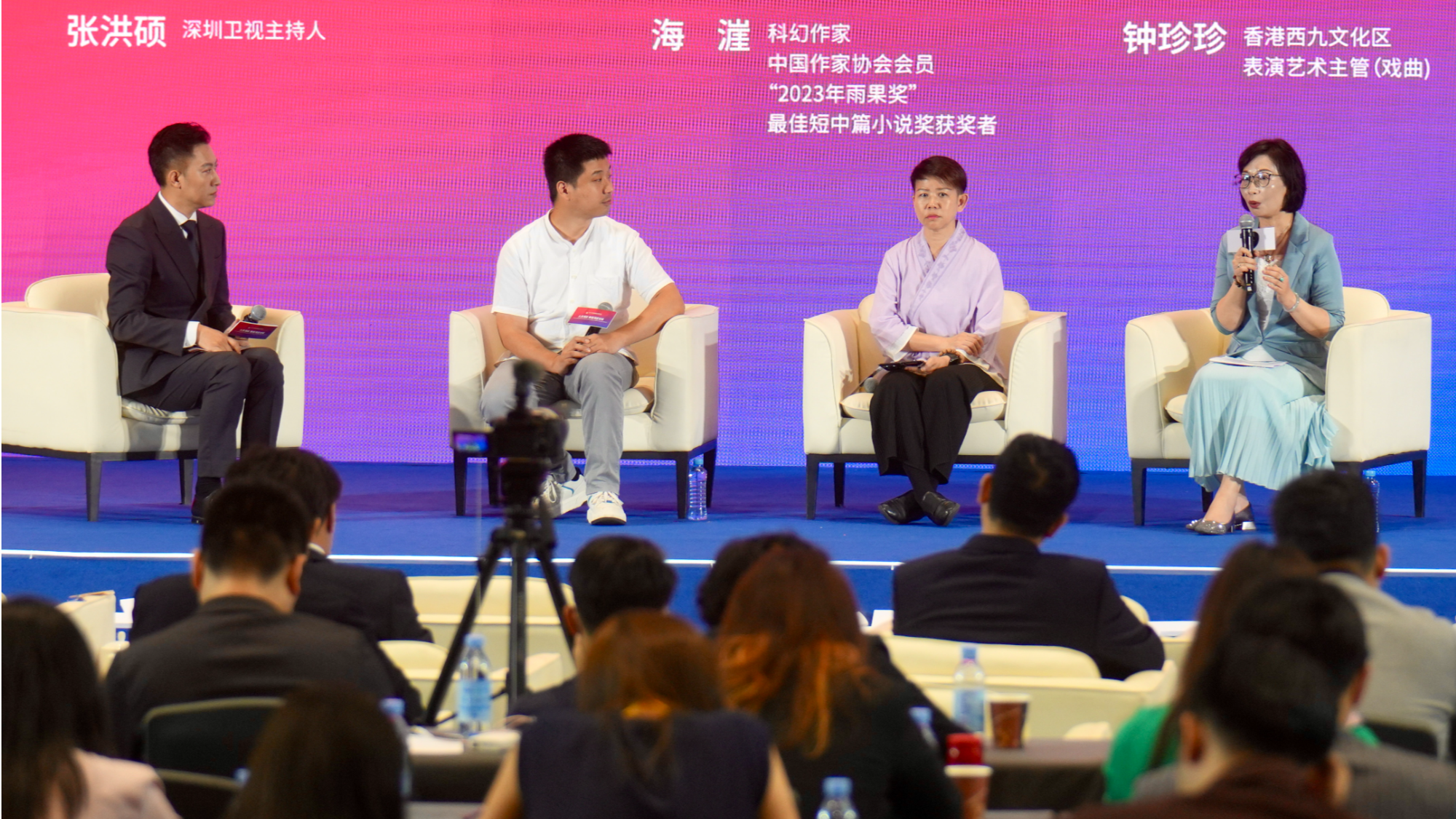
Describing the 11-city Greater Bay Area cluster as an ideal “testing ground” for the integration of culture and technology, experts at a high-level cultural forum highlighted technology’s role in innovating traditional culture and turbocharging artwork production.
Meanwhile, they raised the need for awareness of the limitations of, and the potential legal risks that may arise from being over-reliant on, technologies like artificial intelligence (AI), and advocated for the unique expressions of creators and societal education to encourage the proper utilization of the tool.
They made the remarks during a segment of the Forum on Building Up China’s Cultural Strength 2025, held in Shenzhen, Guangdong province on Tuesday.
READ MORE: Exhibition coils around cultural heritage and AI works
Speaking at panel discussions at a parallel forum titled Building Cultural Strengths and Promoting Digital Intelligence of the Greater Bay Area, Hai Ya, a Shenzhen-based Chinese science fiction writer who won the 2023 Hugo Award for Best Novelette, said that the Guangdong-Hong Kong-Macao Greater Bay Area stands as the pinnacle of the tech era, and that the future of science fiction literature undoubtedly lies in China.
“The vitality of science fiction stems from the advancement of science and technology, and China is the world's largest country to achieve a leapfrog development in the tech sector,” he said.
Leading the tech trend in China, the Greater Bay Area has an abundance of tech firms that can facilitate the promotion of scientific knowledge with their cutting-edge products. The region’s vibrant innovation culture also fosters the growth of creators and enthusiasts of science fiction, he added.
Liu Daoqiang, president of Fantawild Holdings Inc, a renowned theme-park developer and animation producer headquartered in Shenzhen, said the company’s shift to digitalization has boosted its animation production efficiency and catalyzed its development into an industrial powerhouse.
This technological edge also enabled its participation in the visual effects production for Ne Zha 2, a Chinese animation blockbuster that ranks fifth in terms of global box office revenue.
The company has also embraced AI for producing animations, such as in the collection of information for scriptwriting, and the modeling of story scenes.
Liu referenced a quote from another guest's speech to emphasize the importance of integrating with technologies: "Digitalization is not an option; it is a necessity for survival and growth. Standing at the threshold of the digital age, only those who embrace it will succeed, and only the innovators will thrive."
Naomi Chung, head of Xiqu, performing arts of the West Kowloon Cultural District in Hong Kong, shared her yearslong endeavor to revitalize Cantonese Opera using technologies.
Chung has introduced a 3D printed robot based on Cantonese opera master Law Kar-ying, along with various multimedia technologies in performances, capturing the attention of many young audiences.
Chung regards technology as a bridge to communicate with youngsters. “If we want to pass on our exceptional artistic heritage to young people, we must use the tools that they understand best and are most familiar with,” she said.
Mok Ian-ian, president of the board of directors of the Macao Science Center Ltd, who is also the former head of Macao’s Cultural Affairs Bureau, said that the collaboration between humans and machines in cultural creation is becoming an inevitable trend.
“The mastery of AI is an essential skill for modern individuals, much like cultural literacy is for cultural sector practitioners,” Mok said, introducing the Macao government’s efforts to integrate AI knowledge across all levels of education.
READ MORE: HKBU president: AI a booster for culture and creativity
Acknowledging AI’s role in assisting with the preparation of artistic work, especially in the initial research period, she said that the creation and expression of a piece of work should still be completed by the author to ensure the uniqueness of the pieces.
“The purpose of creation is to express an individual's attitude toward the world, but AI reflects the attitudes of humanity as a whole,” she said.
Mok said that although AI's expression may be smooth, it lacks sincerity and the distinct qualities of human emotion. She cautioned that the potential of AI technology does not necessarily translate into benefits for human life, and said there are many ethical, legal, and moral risks involved. She believes that every society has a responsibility to help people recognize this.


